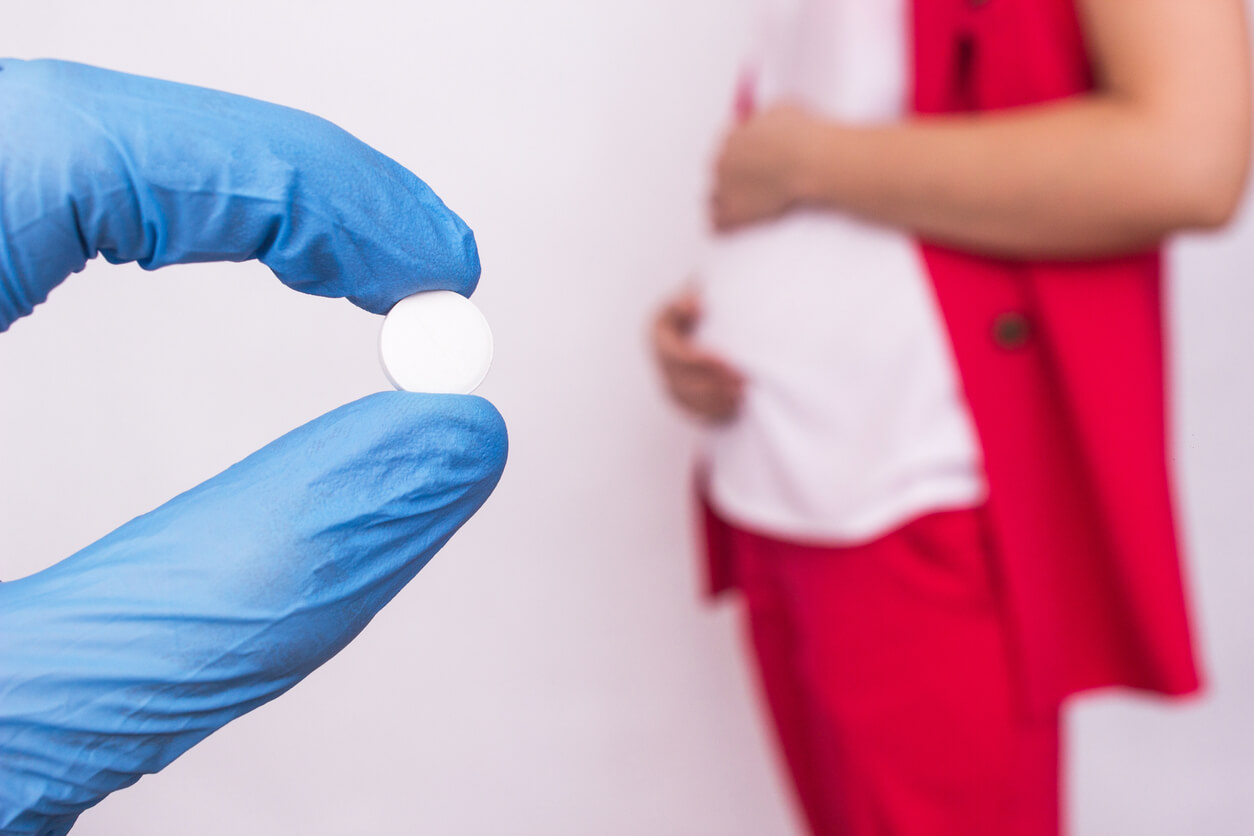The Importance of Iodine During Breastfeeding
An extra supply of iodine during breastfeeding is needed, as breast milk is the only source of this micronutrient for the baby.

During pregnancy, you’ve probably had to supplement your diet with vitamins prescribed by your gynecologist to provide extra iodine and folic acid to your body. Iodine plays a major role during breastfeeding, as it’ll be the only necessary mineral that you’ll have to take while breastfeeding. As always, it’s important to look at each mother’s case. Also, there’ll be women who need an extra intake of other vitamins and minerals. Keep reading to learn more about the importance of iodine during breastfeeding.
What is iodine?
Iodine is a very necessary mineral for our body, as it’s essential for the synthesis of thyroid hormones. The body also needs thyroid hormones for proper bone and brain development during pregnancy and childhood.
Iodine deficiency
Iodine deficiency can cause different alterations in our body, such as the following:
- Goiter: This is the enlargement of the thyroid gland. It manifests itself as an inflammation of the neck. When there’s not enough iodine in the body, the thyroid has to do much more work, which causes imbalances in thyroid hormones.
-
Congenital iodine deficiency syndrome in children: This is a congenital deficiency that causes physical and mental impairment. It’s of utmost importance that a pregnant or breastfeeding mother has a higher daily intake of iodine than another adult to avoid congenital iodine deficiency syndrome in children.
- Infertility: Iodine deficiency and the resulting low level of thyroid hormone can cause women to stop ovulating. This leads to infertility.

Where is iodine found?
This mineral is found in the following foods:
- Iodized salt: This is the main source where we can get iodine for our body more easily.
- Fish and seafood: Seafood is naturally rich in iodine. Likewise, fish such as cod, tuna, or perch are good sources of the mineral.
- Some varieties of seaweed: Kelp is the most common seaweed with a rich source of iodine.
- Milk and dairy products: Milk, yogurt, and cheese are among the main sources of iodine we currently consume.
- Eggs: They’re also a rich source of iodine.
- Fruits and vegetables: Although in smaller proportions than the foods mentioned above, we can also find iodine in them.
The importance of iodine
The countries that signed the Convention on the Rights of the Child (CRC) made a commitment that includes recognizing and protecting the right of children to the enjoyment of the highest attainable standard of health (art. 24 of the CRC). Also, the elimination of iodine deficiency disorders (IDD) by the year 2000.
This was approved by the UN General Assembly on November 20, 1989, and the World Declaration on the Survival, Protection, and Development of Children on September 30, 1990. Therefore, the following can be affirmed as a basic human right of childhood:
- “Every child has the right to an adequate amount of iodine in their diet.”
- “Every pregnant or breastfeeding woman has the right to receive adequate iodine nutrition to prevent the child’s mental development from being affected by a deficiency of this essential nutrient.”

Iodine during breastfeeding
Specific recommendations vary throughout life depending on age, sex, and other factors. Women who are pregnant or breastfeeding need higher amounts of iodine. Namely:
- Adults: 150 mcg/day
- Pregnant women: 220 mcg/day
- Lactating women: 290 mcg/day
As with folic acid supplementation, extra iodine intake should start from the time a pregnancy is planned. This is due to the fact that needs increase from the beginning of pregnancy. In this regard, such supplementation should be as follows:
“Iodine needs in lactating women are estimated at 250-300 µg /day. As salt intake may be reduced during this period, a supplement of 200 µg of iodine per day in the form of potassium iodide is recommended during the lactation period, whether breastfeeding a single child, twins, or siblings”.
-Breastfeeding Committee of the Spanish Association of Pediatrics –
To ensure the correct development of the child
Mothers need an extra large supply of iodine during breastfeeding, as breast milk is the only source of this micronutrient for the infant. In addition, this mineral is important for the baby for proper brain development. For this reason, a mother should continue to supplement with iodine for as long as she breastfeeds.
If the baby is formula-fed, formulas with the necessary amounts of iodine should be used. This is to ensure the correct development of the child, with special importance if it’s a premature baby.

